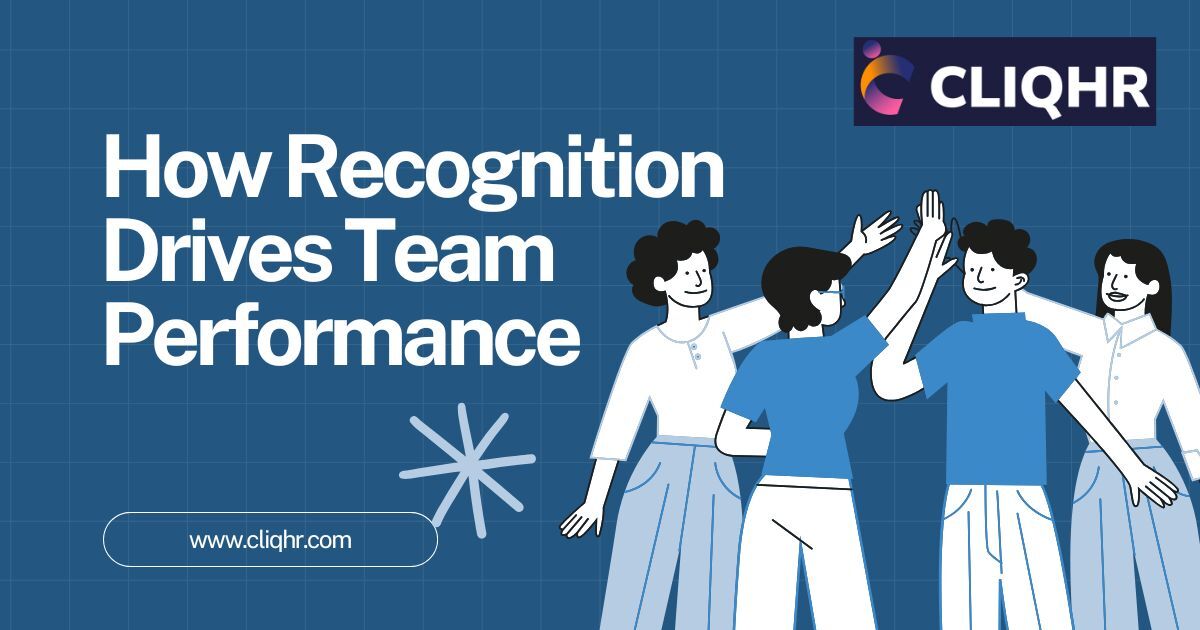
In today’s competitive business environment, fostering a high-performing team is essential for achieving organizational success. While various factors contribute to team performance, recognition stands out as a powerful driver. When employees feel valued and appreciated, they are more engaged, motivated, and committed to their work. Here’s how recognition can significantly impact team performance and why it should be a cornerstone of your management strategy.
1. Boosts Morale and Motivation
Recognition enhances employees’ morale by affirming their contributions and efforts. When team members receive acknowledgment for their work, they feel a sense of accomplishment and pride, which drives them to maintain or improve their performance.
- Example: A simple "thank you" or a shoutout during a team meeting can go a long way in boosting spirits.
- Pro Tip: Pair recognition with specific feedback to make it more meaningful (e.g., "Great job on meeting the project deadline despite the challenges!").
2. Encourages Positive Behavior
Recognizing and rewarding desired behaviors reinforces those actions, encouraging employees to repeat them. This creates a ripple effect, as team members observe and emulate positive behaviors that are celebrated.
- Example: Acknowledging a team member’s collaboration efforts can inspire others to prioritize teamwork.
- Pro Tip: Use recognition programs to align employee actions with organizational values and goals.
3. Strengthens Team Cohesion
Public recognition fosters a sense of unity within teams. When individual contributions are celebrated, it promotes mutual respect and appreciation among team members.
- Example: Highlighting collective achievements, such as successfully completing a challenging project, reinforces the value of teamwork.
- Pro Tip: Encourage peer-to-peer recognition to build stronger relationships within the team.
4. Reduces Turnover and Enhances Retention
Employees who feel valued are less likely to seek opportunities elsewhere. Recognition is a key factor in job satisfaction, directly impacting employee retention rates.
- Example: Regular recognition can make employees feel secure and appreciated in their roles, reducing turnover.
- Pro Tip: Combine recognition with career development opportunities to further solidify employee loyalty.
5. Improves Productivity and Performance
When employees know their hard work will be acknowledged, they are more likely to stay focused and give their best efforts. Recognition acts as a motivator, driving individuals to meet and exceed expectations.
- Example: Recognizing top performers in a sales team can motivate others to strive for similar achievements.
- Pro Tip: Implement a structured recognition program to ensure consistent and fair acknowledgment across the organization.
6. Promotes a Culture of Appreciation
A culture of recognition creates a positive work environment where employees feel valued and supported. This, in turn, contributes to higher engagement levels and overall job satisfaction.
- Example: Regularly celebrating milestones and achievements fosters a supportive and inclusive workplace culture.
- Pro Tip: Leverage technology, such as employee recognition platforms, to make the process seamless and inclusive.
Best Practices for Effective Recognition
To maximize the impact of recognition on team performance, consider these best practices:
- Be Timely: Recognize achievements as soon as they occur to make the acknowledgment more relevant and impactful.
- Be Specific: Highlight what the employee did and why it mattered to the team or organization.
- Be Inclusive: Ensure all team members have equal opportunities for recognition, avoiding favoritism.
- Be Personal: Tailor recognition to individual preferences, such as private notes or public praise.
- Be Consistent: Create a formal recognition program to maintain regularity and fairness.
Also read: Creating a Culture of Continuous Learning in Tech Teams
Recognition is more than just a “nice-to-have” practice; it is a strategic tool for driving team performance and achieving business objectives. By prioritizing timely and meaningful recognition, organizations can unlock their teams’ full potential, foster a positive workplace culture, and achieve sustainable success. Start integrating recognition into your management practices today and watch your team thrive.
